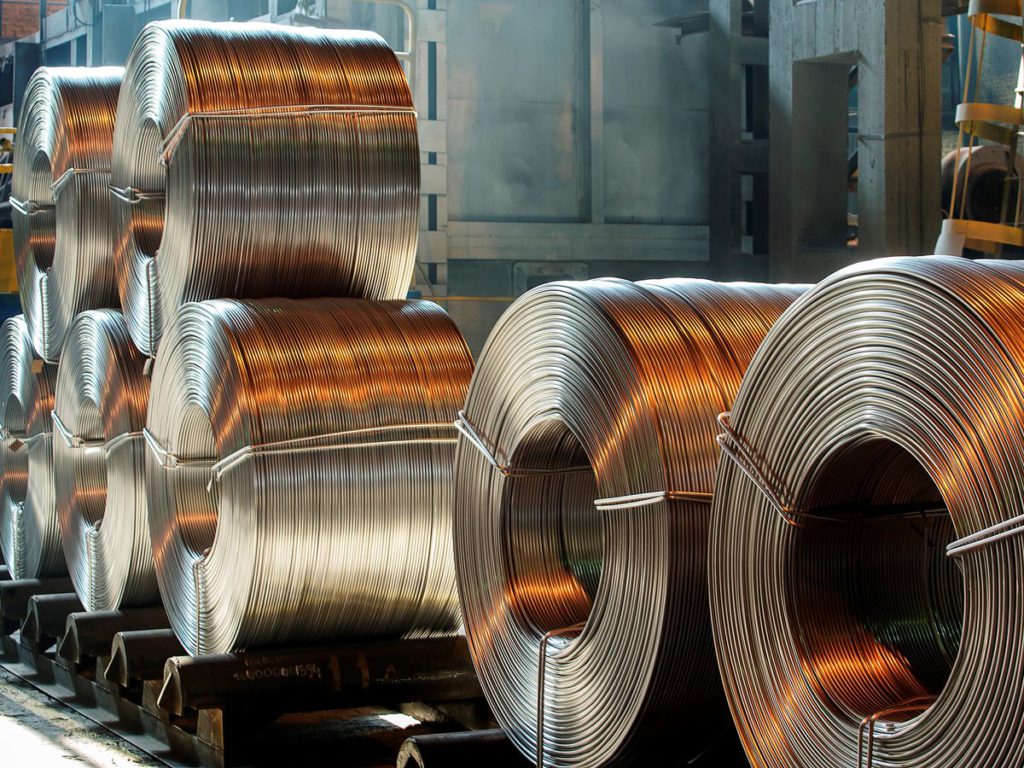Glencore reviewing stakes in two Russian companies

Glencore Plc, the world’s biggest commodity trader, followed some of the world’s largest companies in reviewing its business ties with Russia as the fallout from the invasion of Ukraine intensifies across global commodities markets.
While Glencore stopped short of exiting its investments, the company said it was reviewing its shareholdings in two of Russia’s biggest companies as well as its wider trading operations in the country. It’s a dramatic turn for a company that has long been comfortable operating in the most difficult jurisdictions and whose former chief executive officer was awarded an Order of Friendship by President Vladimir Putin.
The list of companies cutting ties or reviewing their operations has swelled since the weekend as foreign governments ratchet up sanctions against Russia and pile pressure on businesses to cut ties. Already oil majors BP Plc and Shell Plc have announced plans to sever connections with Russian partners after coming under growing pressure from the U.K. government.
Glencore currently owns a 10.55% stake in En+ Group International PJSC, the controlling shareholder of aluminum giant United Co. Rusal International PJSC. It also owns a small stake of less than 1% in Russian oil major Rosneft PJSC. The fair value of the investments at the end of 2021 was $789 million and $485 respectively, Glencore said in its results statement last month.
“We have no operational footprint in Russia and our trading exposure is not material for Glencore,” the company said in a statement Tuesday. “We are reviewing all our business activities in the country including our equity stakes in En+ and Rosneft.”
The company also said it condemned the Russian government’s actions against the people of Ukraine.
Glencore had secured lucrative trading relationships in Russia, buying aluminum and oil from one of the world’s most important natural resource producers. The company secured the oil offtake after the Russian government was scrambling in 2016 to complete the planned sale of a 19.5% stake in Rosneft to help narrow the budget deficit.
Glasenberg, who is still Glencore’s second-biggest shareholder, also sat on Rusal’s board until 2018, when the company started loosening its ties to the aluminum producer amid a previous wave of U.S. sanctions.
Aluminum is one of the few commodities traded by Glencore that’s not underpinned by large-scale production from its own industrial assets. Glencore and Rusal have been long-time partners in the business, and its supply from Russia helped strengthen its position as the world’s largest metals trader.
Rusal announced a $16 billion deal to sell aluminum to Glencore in 2020, which would allow it to sell about one third of its production to the trader. The deal would run until 2024, with an option to extend it through 2025, Rusal said at the time. It also buys some oil from Rosneft, though it does not publicly disclose the volumes it trades.
Glencore’s review is likely to add further turmoil to the aluminum market, with prices for the metal already at a record high. Shipper A.P. Moller-Maersk A/S said it’s halting vessel bookings to and from Russia, deepening supply turmoil for buyers who are already facing critical shortages.
(By Thomas Biesheuvel)
{{ commodity.name }}
{{ post.title }}
{{ post.date }}




Comments